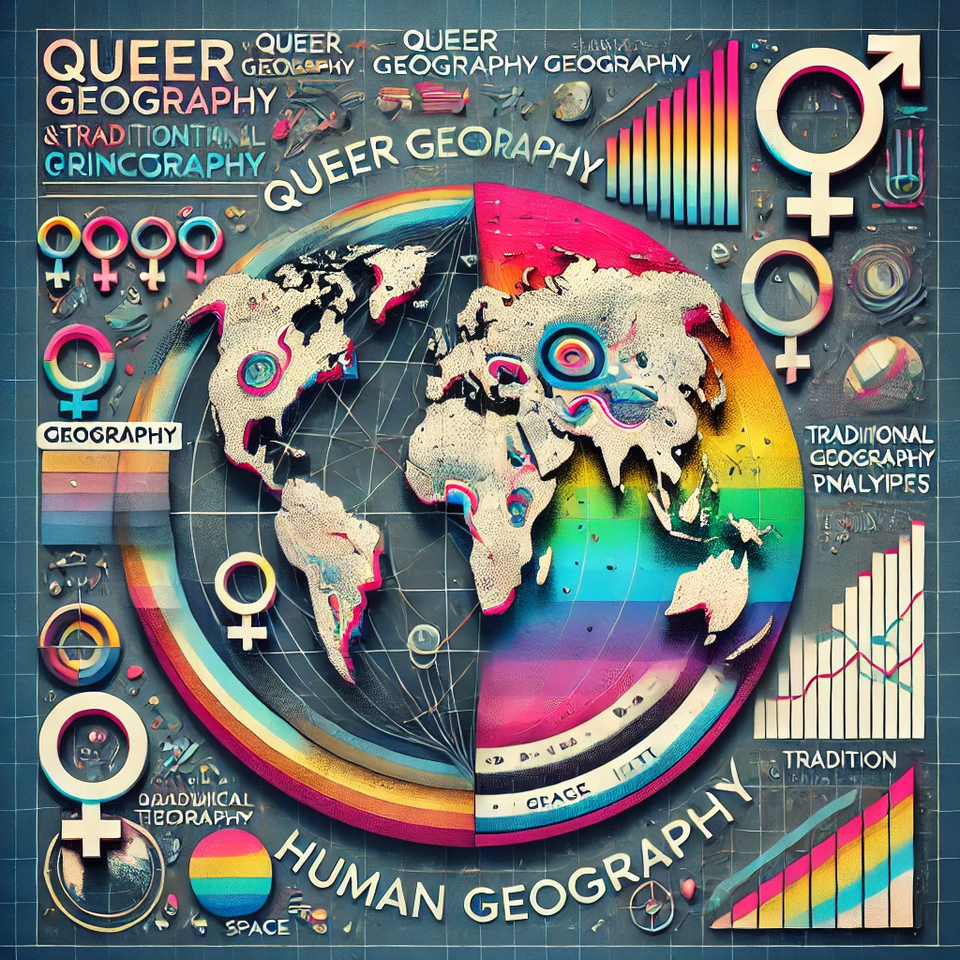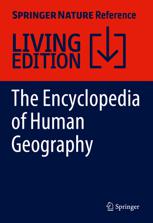Queer Theory and Geography
Published in Social Sciences and Earth & Environment

The Debate: Integrating Queer Theory into Geography
The field of human geography has long been shaped by evolving perspectives, integrating social and cultural theories to better understand space, place, and human interactions. One of the more recent theoretical influences is queer geography, which draws from queer theory to explore the role of gender and sexuality in spatial contexts. However, the rapid expansion of this sub-discipline raises important questions about the fundamental nature of geographical inquiry and whether such an approach aligns with the core principles of the field.
In my chapter, Queer Theory and Geography – Crossing New Perspectives and Traditional Principles, I critically engage with this debate, questioning whether the creation of a separate queer geography is necessary or whether its insights can be effectively incorporated into traditional human geography. While acknowledging the importance of gender and identity studies, I argue that geography’s core framework—centered on spatial relationships, human-environment interactions, and regional analyses—provides a sufficient foundation for addressing these concerns without requiring a departure from its established principles.
Our Stance: Geography Must Retain Its Core Principles
One of the key points raised in this work is the risk of overextending geographical inquiry into areas that diverge from its fundamental focus. While gender and sexuality certainly shape human experiences of space, they do not necessitate the restructuring of geography as a discipline. We believe that the study of human geography should continue to analyze spatial relations through scientific, empirical, and practical methodologies rather than being primarily shaped by ideological frameworks.
Additionally, the increasing tendency to promote a genderless society, which is sometimes endorsed by queer geographies, goes beyond human nature. Human societies have historically been structured around gender roles—not as rigid binaries, but as elements of cultural, social, and biological realities. The attempt to erase or neutralize these distinctions entirely raises concerns about the balance between progress and the fundamental truths of human existence.
Concerns with a Separate Queer Geography
The emergence of queer geography as a distinct field suggests that traditional geography is insufficient for addressing gender and identity concerns. However, we contend that:
-
Traditional human geography is already equipped to handle social justice inquiries – The study of urban spaces, migration, labor patterns, and cultural landscapes inherently includes aspects of gender and identity. The addition of queer perspectives should complement—not replace—established methodologies.
-
Overemphasis on identity can overshadow core geographical principles – Geography is fundamentally about the spatial organization of societies, the interaction between humans and the environment, and the mapping of real-world phenomena. By prioritizing identity-focused discourse, there is a risk that geography becomes more about theoretical activism than spatial analysis.
-
Applying modern gender perspectives to historical and cultural landscapes can distort interpretations – Human geography often involves analyzing past landscapes and societies. Imposing contemporary gender theories on historical spaces can sometimes lead to anachronistic interpretations that do not reflect the realities of the time.
Freedom of Thought and Academic Integrity
This work does not reject the value of queer theory outright. Instead, it calls for a balanced integration into human geography—one that respects both traditional principles and evolving perspectives. We strongly support:
- Freedom of speech and academic debate – There must be room for critical discussions on whether certain theoretical frameworks genuinely enhance geographical research.
- Recognition of international human rights – The study of marginalized groups and social justice is important, but it should not override geographical objectivity or force an ideological consensus.
- Maintaining the discipline’s integrity – Geography should not be reshaped to fit social trends but should remain a science-based field that incorporates new insights while preserving its foundational methods.
Final Thoughts: Towards a Balanced Approach
The discussion on queer geography is not about exclusion but about integration. We argue that human geography does not need to fragment itself into increasingly specialized subfields to accommodate identity-based perspectives. Instead, it should apply critical frameworks within its existing methodologies to ensure a comprehensive yet grounded analysis of human spaces.
As scholars, we must ask: Do we expand geography to align with political and social trends, or do we allow geography to evolve while maintaining its scientific rigor? This paper advocates for the latter—an approach that respects the realities of human nature, the role of gender in society, and the need for geography to remain a spatial, rather than ideological, science.
📖 Read the full paper here: https://doi.org/10.1007/978-3-031-25900-5_222-1





Please sign in or register for FREE
If you are a registered user on Research Communities by Springer Nature, please sign in